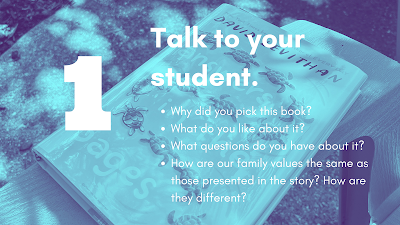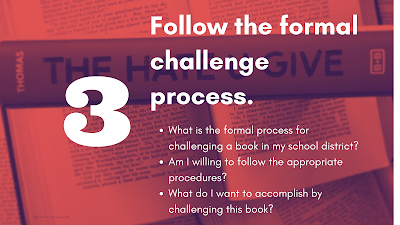Best Practices Beyond Banned Books Week
I can’t let Banned Books Week pass without publicly saying something about the importance of public and school libraries and the multitude of voices they hold space for on their shelves. In 2021, the American Library Association recorded 1,597 individual books being challenged and/or removed. 2022 is on track to set a new record for number of book challenges.
PEN America has noted a number of disturbing trends in recent challenges. Instead of concerned parents and individuals raising challenges, politically motivated groups are influencing the challenges or issuing them. Large percentages of the challenges are issued for books by and about LGBTQIA+ and BIPOC individuals and communities (41% and 40% respectively in the last year).
Library collections are meant to be diverse and reflective of their entire communities. They are meant to shelve books of varying viewpoints, even opposing viewpoints. They are created to curate curiosity and critical thinking. When voices are silenced through censorship, our entire community suffers.
I have been working in a school library for a few years now and can attest to the importance of having books that reflect back a variety of experiences. It is one of the most beautiful moments to see when a student finds a book on the shelf and can see themself in the cover, in the main character, in the struggles and triumphs on the pages.
Perhaps your student has brought home a book that you don't believe is reflective of them, but that doesn't mean the book doesn't tell the story of another kid or family in your community. Not every book is meant for every reader, but every book was selected with a reader in mind.
Banned Books Week began in 1982, another year in which there was another surge in book challenges. That was the same year the Supreme Court decided in the Island Trees School District vs. Pico that school boards couldn’t remove books solely based on a book’s content. As a result, school districts created formal processes for challenging books.
Unfortunately, over the last couple of years, these policies and procedures have been ignored. From July 2021 - June 2022, PEN America found that 96% of book challenges did not follow the best practice guidelines for challenging library materials as set by the American Library Association and the National Coalition against Censorship. Books are being pulled from library shelves by school district administrators, library and school board members, and in some cases patrons are taking it upon themselves to simply take books from the shelves with no intention of returning them.
1. Begin with a conversation with your child to learn why they chose the book and how they feel about its contents.
2. Engage in a conversation with your child’s teacher, the school librarian, or your public librarian in order to learn more about materials selection and better understand why the book was chosen.
3. If you still feel like the book in question isn't a good fit for your entire school population, then find your school district's formal book challenge procedures and follow them.
Most importantly, remember that you as the parent are always free to determine which books your own child may read. However, your rights as a parent do not include determining which books every child in your community may read.
I know that when emotions run high, when we are bombarded by social media posts meant to stir emotions like fear and anger, it can be hard to remember that our diversity of experiences, cultures, and beliefs is what makes our country so beautiful. Let our library books reflect that beauty.
Resources:
https://pen.org/report/banned-usa-growing-movement-to-censor-books-in-schools/







Comments
Post a Comment